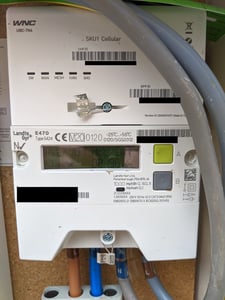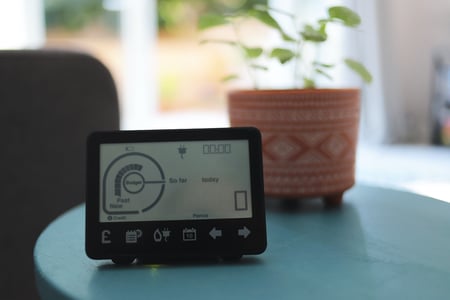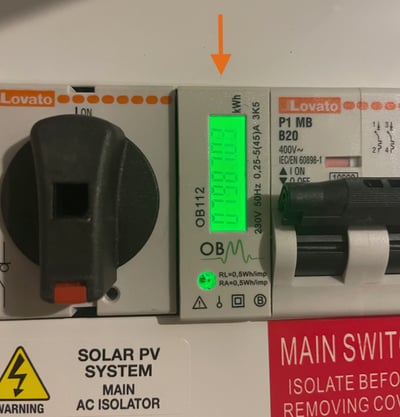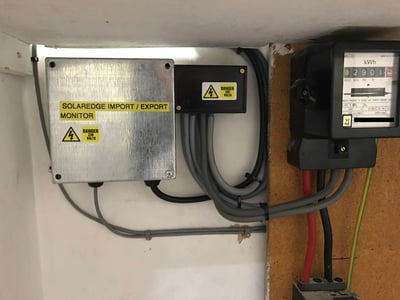For domestic solar PV installations, the VAT is now 0% until 2027.
For domestic solar PV installations, the VAT is now 0% until 2027.
Shading can have a serious impact on system performance and, as such, can affect the financial return of your solar PV system. If shading might be a problem, Spirit Energy is able to provide full computer-generated shading analysis and system design using specialist computer software. We can advise on the best panel configuration to minimise impact on performance, and highlight any potential losses, so you can make an informed decision.
Yes, we recommend having good internet at your property. Some inverters, battery chargers, batteries and monitoring products require internet connectivity for the purposes of remote monitoring and / or correct functioning.
You'll often see PV systems classified by their theoretical kWp (killowatt peak) output. This number is mostly used for comparison - the important measure for your system is the estimated annual kWh (killowatt hour) generation. It's the energy you can expect your system to produce, allowing for local conditions, shading, whether the panels are in or on roof, orientation etc.
Read more in our blog on peak power.
Large energy suppliers are legally obliged to offer an export tariff, to pay you for any excess solar power sent to the grid. It's usually around 15p/kWh.
Check out our guide to current export rates to help you choose the best tariff.
To be eligible for Smart Export Guarantee (SEG) payments, you need to be able to send half-hourly export monitoring to your energy company. The easiest way to do this is via a smart meter.
You need to set up your export payments through your chosen electricity company. Once you’ve chosen the SEG tariff you prefer, go to that company’s website and sign up. That supplier should then guide you through the process to ensure they are reading the export from your smart meter and set up your payments.
The supplier may ask for a copy of your MCS certificate and DNO response letter. This will be included in your handover pack if possible or forwarded on as soon as we have the DNO’s response.
There is usually a delay from the time of install to actually being paid for the energy you export. This is because once a system has been commissioned we have to notify the DNO and then they respond confirming that they accept the installed system. This can take 2-8 weeks but occasionally it is longer.
Your energy provider will want this confirmation before they pay you for export, although they may pay you retroactively if you have an appropriate smart meter installed that can measure the exported power.
If your electric meter needs to be upgraded to a smart meter capable of measuring exported energy (most meters will only measure consumption, not export) this can take weeks or months to swap out depending on the availability of your electric supplier. Once you sign up to the export tariff they will normally check and tell you if the meter needs to be upgraded. Unfortunately you will not be paid if the meter has not been changed, although it is worth asking the supplier to provide a reimbursement if it takes a very long time to swap out your meter.
Note that many electricity suppliers do not yet offer 3-phase smart meters that can measure export.
Export payments usually amount to about £10 a month. In the meantime, you are still benefiting the environment by providing green energy to your neighbours. You will always be able to use what you generate on site too, regardless of your export situation.
The vast majority of our domestic retrofit installations are installed as permitted development and as such do not require planning permission.
However, we advise all customers to take their own advice on planning as every local authority has their own way of interpreting the guidelines. We can prepare and submit planning applications on your behalf, or supply drawings if you want to do the application yourself, at additional cost. For more details on the requirements please see the solar panel section on the planning portal website.
No prior approval is required for the connection of 3.68kWp (4kWp in practical terms) to a single-phase electricity supply, or 11kWp to a 3 phase supply. Above these limits, an application needs to be made to the network operator (DNO) in advance of connection. We generally recommend we apply on your behalf before you confirm the order, for a cost of £100 inc VAT refundable upon order; it usually takes 11 weeks for the application to be processed.
All installations need to comply with Building Regulations, in particular Parts A (structural safety), C (resistance to moisture i.e. water-tightness) and P (electrical safety). As MCS accredited installers and NICEIC domestic installers, we are able to self-certify under Building Regulations and provide you with a certificate to give to any future owner of your property. Note that we will not certify any roof-mounted installation without a report from our (or your) qualified structural engineer.
We are required by law to ensure the bonding in your house meets the standards set out in the current wiring regulations. Any work required to do this will be determined at the technical survey. Any roof strengthening work required to meet Building Regulations will be determined in the structural report which follows the technical survey. We will advise you of any additional costs, and if you do not wish to proceed with the installation, you may cancel the contract - but please note there will be an abort fee to cover the cost of the surveys. Alternatively, you may prefer to ask a local electrician to upgrade the bonding, and a local carpenter to strengthen the roof.
Our contract complies with our obligations as members of both the Renewable Energy Consumer Code (RECC) and the Microgeneration Certification Scheme (MCS). The aim of RECC is to guarantee a high-quality experience for consumers wishing to buy or lease small-scale energy generation systems for their homes. The Code is backed by the Trading Standards Institute (TSI) as part of a self-regulation initiative: The Consumer Codes Approval Scheme. Members of RECC agree to comply with the Code. See www.recc.org.uk for more information.
Spirit Energy is an MCS Installer, registration number NIC-1220. Our systems are commissioned according to MCS installation standards to ensure that the system is safe, has been installed in accordance with documented procedures and manufacturer’s requirements and is operating correctly in accordance with the system design. Following the testing and commissioning of the system, a detailed operating manual and handover pack will be provided to you.
If your property is not freehold, then it is advised that you check the terms of the freehold to ascertain whether installing solar panels is permitted.
A smart meter is an internet-connected version of an electricity meter, capable of communicating data to your electricity supplier. You need a second generation (SMETS2) smart meter to guarantee it continues to be smart if you change supplier. Smart meters can also measure any solar power exported to the grid at half-hourly intervals, which is necessary to claim a Smart Export Guarantee tariff.
Spirit does not install smart meters. You will need to request one from your energy supplier.
Note that many electricity suppliers do not yet offer 3-phase smart meters that can measure export.
| Example smart meter: | Example in home display: |
 |
 |
A generation meter measures how much electricity your solar PV system is generating. Spirit installs this along with the solar system.
The serial number on your generation meter will also be on your MCS certificate. You will likely need this if you’re claiming a Feed-in Tariff from your energy supplier (but note the FiT closed to new applicants in 2019).
Example generation meter:

An export meter measures how much electricity you export to the grid from your solar PV system. Most systems don’t have an export meter, as Ofgem doesn’t require them for small generators under 30kW. Instead, residential systems usually use a second generation smart meter to monitor exported electricity for reimbursement.
Spirit does not install export meters. If you have a system larger than 30kW and are unable to get a smart meter that can measure export, you will have to speak to your energy supplier about installing an export meter.
Example export meter:

Yes, we can use your existing scaffolding, providing it’s safe for our installers. This means that the scaffolding should cover the whole width of the roof where the panels are going, with the platform at eaves level and edge protection. The benefit of using your scaffolding is that it can take a few hundred pounds off the installation cost.
Scaffolding needs to be at eaves level for solar PV installation.
In-roof PV systems are most cost effective to install when you are building a new roof or having your property re-roofed. Once the roof has been felted and battened, we install the solar pods and panels (the PV roofworks) and perimeter flashing. Then your roofers tile around the array, including firmly sticking down flashing. We can do the PV electrics at the same time as the panel installation or at a later date, depending on what’s best for your build. Installing in-roof saves money on tiles, scaffolding (if it’s there already) and structural survey (if already done).
Rooftop solar PV is generally considered to be permitted development, unless in a conservation area or on a flat roof. In that case, presuming there is an existing planning application for your project, we advise you amend these plans to include the solar PV. We’re happy to supply example photos, datasheets or drawings if required.
It is recommended that you inform your property insurers about the proposed installation to check if it will increase your buildings insurance premium.
Spirit Energy has appropriate insurance to cover possible third-party damage, which may be caused by any of our activities in supplying a small-scale energy generator to you.
Your deposit is insured with Home Improvement Protection (HIP) so that you can get your money back if we cannot deliver your equipment because we have gone out of business. Any money you give us up-front will be placed in a separate ring-fenced client account and only transferred to our main business account to pay for goods and services associated with your contract.
Spirit Energy offers a 5 year Workmanship Warranty on all solar PV installations. This is in addition to the 25 year manufacturer performance warranties on the panels. And, in the event you need to claim in the first 5 years, we will do this on your behalf to save you the hassle.
All our warranties are backed by Home Improvement Protection (HIP), who underwrite our warranties. This means that even if we go bust, your warranty doesn’t: HIP will back the warranty and arrange for any required work to be carried out. This gives you absolute peace of mind that your investment is covered. See hip.insure for more information.
We adhere to data protection legislation. We don’t pass information to a third party without your permission. Read our privacy policy.
See our full domestic terms and conditions.
See our full commercial terms and conditions.
We always endeavour to provide the best service and products for our customers. However, on rare occasions, we recognise that there may be times where our customers may not be completely satisfied.
To ensure we are able to put things right as soon as we can, please read our complaints procedure below and we will respond promptly to ensure complete satisfaction. As soon as possible after the completion of the works, please inspect the work to ensure everything has been carried out to our usual high standards.
In the unlikely event there is anything you are not completely satisfied with, please contact us as soon as you can in order for us to rectify any problems swiftly.
We aim to respond within 2-3 working days of receiving your complaint and where possible, will provide you with a date to remedy any issues raised.
Where we are unable to resolve your complaint using our own complaints procedure, we handle our dispute resolutions in compliance with the Renewable Energy Consumer Code (RECC). In the unlikely event of a complaint arising if you wish to refer the complaint to them please contact: 0207 981 0850 or via their website: www.recc.org.uk/consumers/how-to-complain.
Copyright © Spirit Energy 2026 · info@spiritenergy.co.uk · 0118 951 4490
Jobs and Careers
Interested in joining the Spirit team? Email jobs@spiritenergy.co.uk
Spirit House, 25 Albury Close, Reading, RG30 1BD
(Location formerly known as 44 Portman Road, Reading, RG30 1EA)
Spirit Energy is the trading name of Spirit Solar Ltd · UK Company Number 07138647
Although care is taken to ensure that the information on our website (www.spiritenergy.co.uk) and any guides, calculators or checklists provided by us, electronically or otherwise, are accurate and up-to-date, we cannot accept any responsibility for mistakes or omissions. We enter into no express or implied conditions, warranties, terms or representations regarding the quality, accuracy or completeness of the information. We exclude to the extent lawfully permitted all liability for loss or damage, whether direct, indirect or consequential arising out of your use of our website or any guides, calculators or checklists provided by us, or from any information or omission contained in our website or any guides, calculators or checklists provided by us.